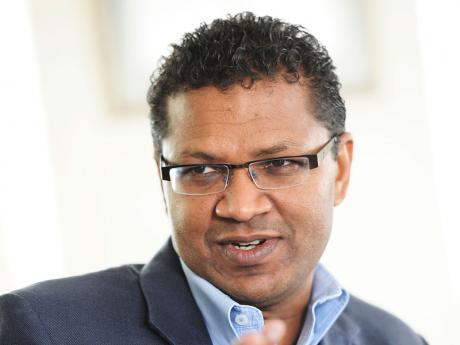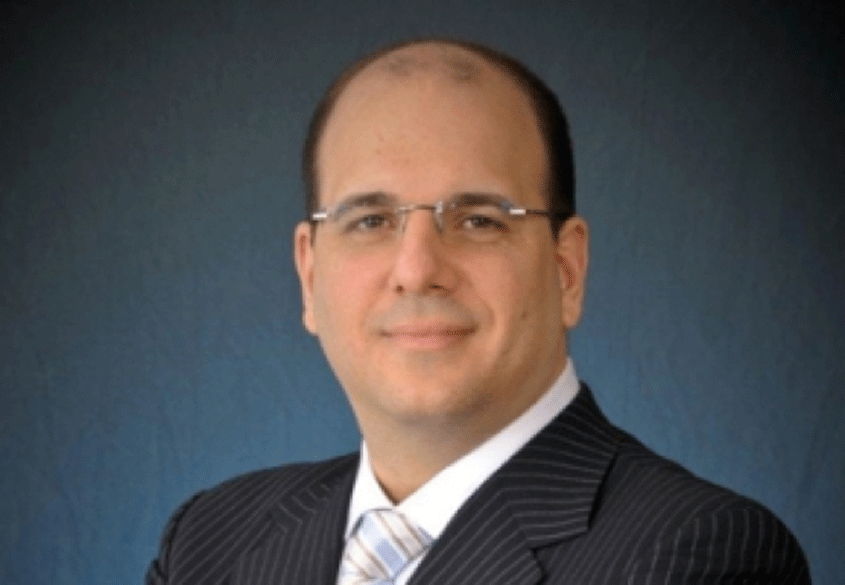Mr. Chairman, we recognise that Guyana, a founding member of CDB, is not being left behind in the continent’s economic awakening. Indeed, in recent times, Guyana has recorded consistently high economic growth rates and impressive improvements in many of its key indicators of social and economic performance.
For these reasons, this occasion represents an ideal setting for us to examine the nexus between competitiveness and economic growth, and the role that energy plays in this mix.
As CDB’s borrowing member countries (BMCs) move to strengthen trade with South America, Guyana occupies a strategic position as a gateway to this great continent.
Guyana occupies a strategic position as a gateway to this great continent.
But, if our aspiration to end poverty in our Region and to provide high quality jobs for our young people is to be realised; and if the dream of our founding fathers for a just and prosperous Caribbean is to be fulfilled, then our industries must be equipped and facilitated to compete in South and North America. They must be equally prepared to take advantage of the opportunities being offered through the European Economic Partnership Agreement; the hopefully imminent Caribbean-Canada Trade Agreement; and the burgeoning markets of the middle and far eastern countries.
When we see new export-focused industries taking firm root in our economies, then, and only then, can we be assured that the right foundation for the sustainable prosperity of our people has been laid.
Recently, we have been talking a lot about economic growth, which is an essential element in the prosperity puzzle. But for economic growth to be sustainable, it must be undergirded by competitiveness, which has to be global in its outlook and in its reach.
Three Propositions In Relation To Competitiveness
This morning, I invite you to consider three propositions in relation to competitiveness.
First, Caribbean countries have a competitiveness problem; and it is at the root of our difficulty in achieving the high rates of economic growth which we need to be able to provide the standard of living to which our people aspire.
Second, the high price of electricity is a major source of our region’s uncompetitiveness, and of our vulnerability to external shocks.
Third, we can increase our energy independence substantially; reduce the cost of energy; and in the process, create a whole new industry based on a new paradigm.
Lack Of Competitiveness Constrains Growth
I will not detain you for too long, on my first proposition that lack of competitiveness is our biggest constraint to growth.
High rates of economic growth have eluded the majority of CDB’s BMCs, for a long time. Our Region’s economic expansion of 2 percent (%) per annum over the past decade has been consistently below the global rate of 3.8%; lower than the 4% average for other Small Islands Developing States (SIDS); and way below the average of 6% for emerging and developing countries.
Lack of competitiveness is our biggest constraint to growth.
Our anemic growth performance is further manifested in widening fiscal imbalances; high debt ratios; and declining levels of foreign exchange reserves.
According to two reputable surveys with which most of you are familiar – The World Bank’s “Doing Business” Survey and the World Economic Forum’s Global Competitiveness Index – the Caribbean’s ranking does not compare well with other countries in the area of competitiveness.
For example, out of 189 countries surveyed for the Doing Business index, the average ranking for the Caribbean is 100.
The rankings confirm that our BMCs will have difficulty maintaining existing markets and penetrating new ones unless there is radical transformation in the way we do business.
Importantly, the two surveys highlight several areas which we need to address. These include inadequate transportation, telecommunication and logistics infrastructure; insufficient access to affordable credit; bureaucratic red-tape; low productivity; and high energy costs.
So, the inability to compete stands out as a major challenge for our Region.
High Energy Prices And Reliance – Primary Sources Of Uncompetitiveness And External Vulnerability
This brings me to my second proposition.
We cannot transform the Caribbean’s competitiveness landscape without a frontal attack on energy costs and the generally poor state of our electricity infrastructure.
Most people in this audience will agree that electricity costs in our region are very high. In general, households pay between US 0.30 cents and US 0.40 cents per kilowatt hour (kWh).
“Why are electricity prices in the Caribbean so high?”
Prices also vary significantly from country to country. Household tariffs in 2012 ranged from a high of approximately US 0.48 cents per kWh in Dominica and Montserrat to a low of US 0.25 cents per kWh in Belize where the energy mix includes some renewables, namely hydro and biomass.
Among the BMCs, the outliers are households in fossil-fuel-endowed Suriname and Trinidad and Tobago, where rates were under US 0.07 cents per kWh. These rates are approximately four times the average rates in North America. A similar situation obtains for commercial and industrial rates.
An enterprise survey conducted by the World Bank in 2010 found that at least 30 (%) of Caribbean firms identified electricity costs as a major constraint to doing business.
So, we are forced to ask, “Why are electricity prices in the Caribbean so high?”
First, the combination of high diesel and heavy fuel oil costs and the inherent inefficiency of diesel technology, which accounts for the majority of the generation in BMCs, are the principal contributors to these high electricity prices. Further, these fuel prices are subject to the volatility of international oil markets, which are highly responsive to shifts in geo-politics.
Second, small market size and the absence of economies of scale in the generation of electricity compound the problem.
At least 30 (%) of Caribbean firms identified electricity costs as a major constraint to doing business.
Third, most generation facilities in the Caribbean are approaching the end of their useful life, many being more than 20 years old. These facilities, therefore, do not benefit from the efficiencies inherent in the new technologies built into generators of more recent vintage.
The macro-economic impact of the high cost of imported fuel and the consequential high electricity price are reflected in deteriorating performance indicators in most BMCs. High levels of debt to GDP and depletion of foreign reserves are directly related to this dependence on imported oil. High electricity prices erode the competitiveness of the regional economies and, therefore, their ability to earn the required foreign exchange to pay for imports, including oil. Unless, therefore, we can reduce our dependency on imported fossil fuels, and unless we can substantially reduce energy costs, we will not succeed in improving our competitiveness and reducing our vulnerability to external shocks.
There has been a perception that Trinidad and Tobago is the only energy-rich country in the Caribbean.
Continued in Part 2
Extracted from a presentation entitled “Unlocking Opportunities For Competitiveness And Growth The Role Of Energy” by Dr. Wm. Warren Smith President Caribbean Development Bank at the Forty-Fourth Annual Meeting of The Board of Governors Guyana May 28 and 29, 2014

 Businessuite News24 International2 years ago
Businessuite News24 International2 years ago
 Feedback & What You Think2 years ago
Feedback & What You Think2 years ago
 Marketing & Advertising2 years ago
Marketing & Advertising2 years ago
 Businessuite Women1 year ago
Businessuite Women1 year ago
 Businessuite 50 Power and Influence1 year ago
Businessuite 50 Power and Influence1 year ago
 Leadership Conversations1 year ago
Leadership Conversations1 year ago
 Businessuite Markets2 years ago
Businessuite Markets2 years ago
 RANKING7 months ago
RANKING7 months ago







